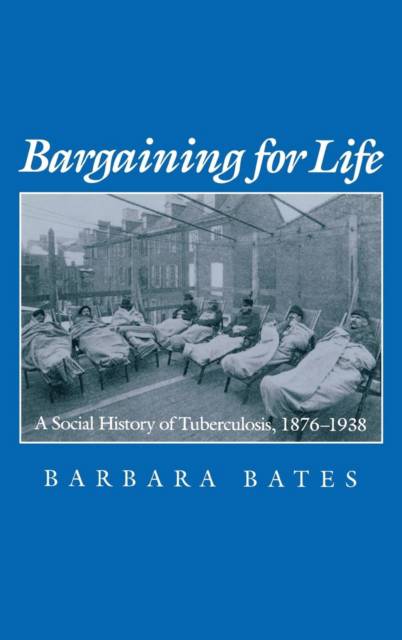
En raison d'une grêve chez bpost, votre commande pourrait être retardée. Vous avez besoin d’un livre rapidement ? Nos magasins vous accueillent à bras ouverts !
- Retrait gratuit dans votre magasin Club
- 7.000.000 titres dans notre catalogue
- Payer en toute sécurité
- Toujours un magasin près de chez vous
En raison de la grêve chez bpost, votre commande pourrait être retardée. Vous avez besoin d’un livre rapidement ? Nos magasins vous accueillent à bras ouverts !
- Retrait gratuit dans votre magasin Club
- 7.000.0000 titres dans notre catalogue
- Payer en toute sécurité
- Toujours un magasin près de chez vous
Description
Tuberculosis was the most common cause of death in the United States during the nineteenth century. The lingering illness devastated the lives of patients and families, and by the turn of the century, fears of infectiousness compounded their anguish. Historians have usually focused on the changing medical knowledge of tuberculosis or on the social campaigns to combat it.
Using a wide range of sources, especially the extensive correspondence of a Philadelphia physician, Lawrence F. Flick, in Bargaining for Life Barbara Bates documents the human story by chronicling how men and women attempted to cope with the illness, get treatment, earn their living, and maintain social relationships.Spécifications
Parties prenantes
- Auteur(s) :
- Editeur:
Contenu
- Nombre de pages :
- 456
- Langue:
- Anglais
- Collection :
Caractéristiques
- EAN:
- 9780812231205
- Date de parution :
- 29-03-92
- Format:
- Livre relié
- Format numérique:
- Genaaid
- Dimensions :
- 152 mm x 229 mm
- Poids :
- 766 g

Les avis
Nous publions uniquement les avis qui respectent les conditions requises. Consultez nos conditions pour les avis.






